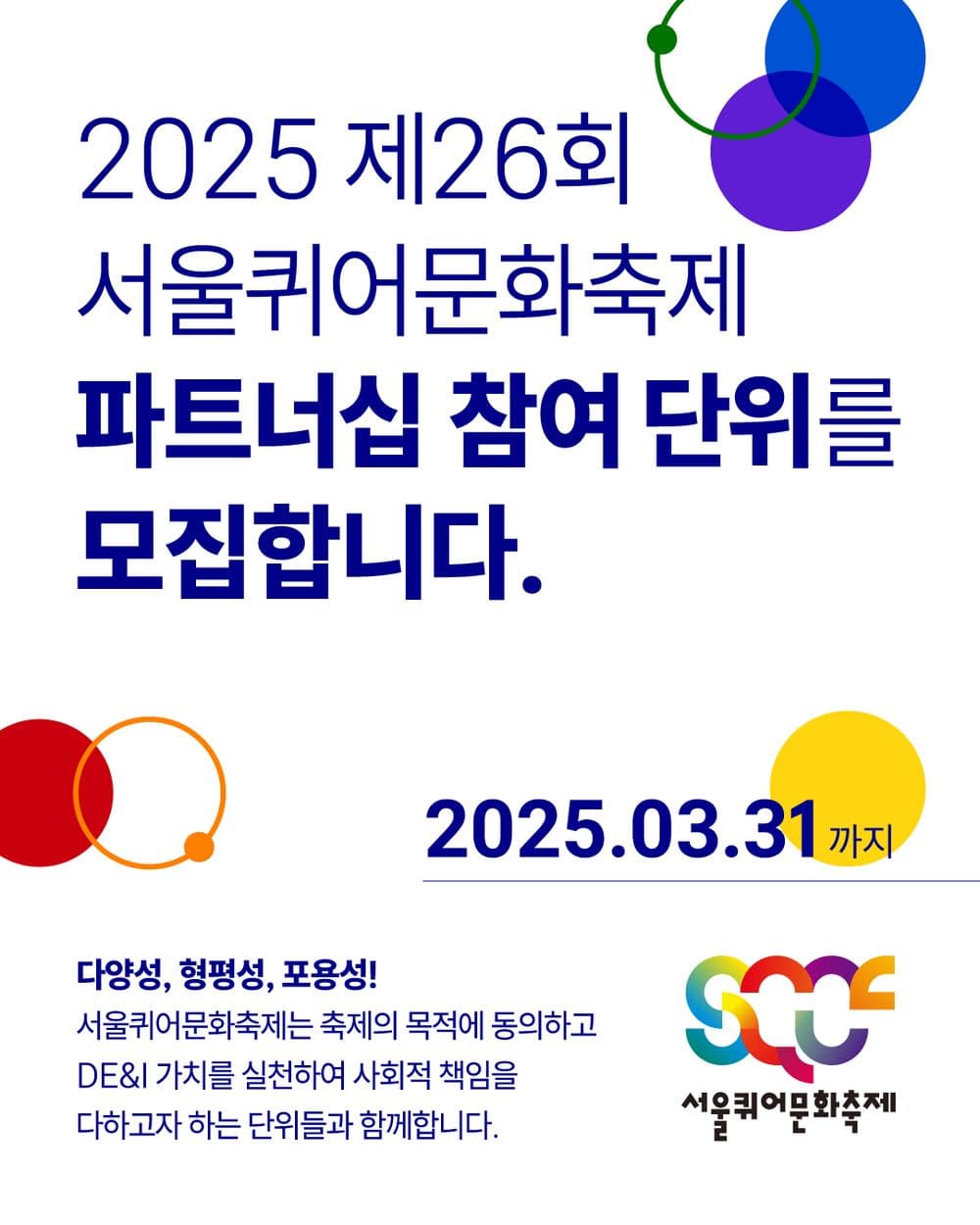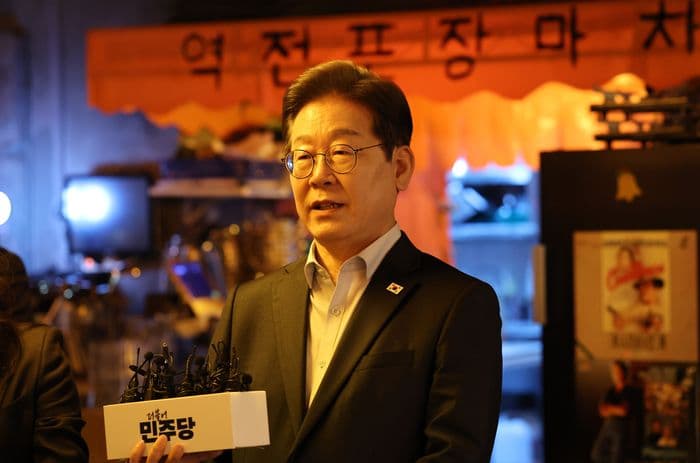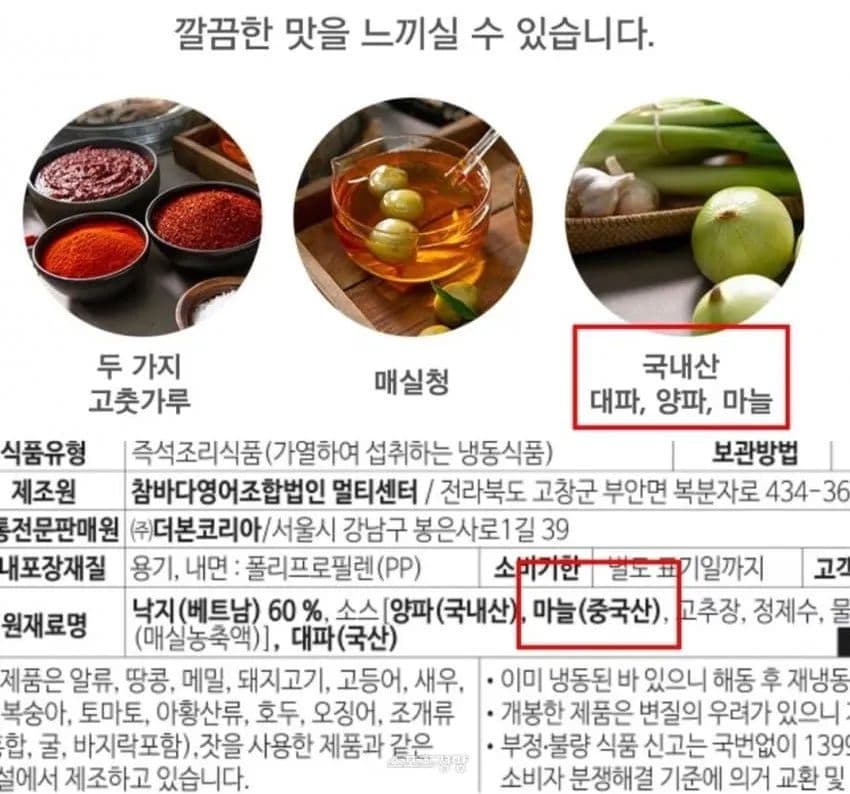2025 Seoul Queer Culture Festival: Resilience Amid Polarization

Festival Overview and Historical Context
The 26th Seoul Queer Culture Festival (SQCF) will run from June 1-22, 2025, marking Asia's largest LGBTQ+ celebration with an estimated 150,000 attendees. This year's theme 'We Never Stop' responds to heightened opposition from conservative groups and the National Human Rights Commission's unprecedented decision to abstain from both the festival and counter-protests. The festival includes five main events: Rainbow Goods Exhibition (June 7-8), Online Queer Parade (June 1-22), 25th Anniversary Forum (June 19), Korean Queer Film Festival (June 20-22), and the flagship parade on June 14 whose location remains undisclosed due to ongoing negotiations.
Since its 2000 inception, SQCF has grown from 50 participants to becoming a cultural battleground reflecting Korea's struggle between traditional values and progressive movements. The 2023-2024 Seoul Plaza cancellations and this year's venue challenges highlight persistent institutional barriers despite increasing international recognition.
Venue Controversies and Safety Concerns
Organizers face unprecedented difficulties securing parade locations after Seoul Plaza became unavailable due to conservative opposition groups' pressure on local authorities. The 2025 parade route remains unannounced as of April 30, with safety concerns amplified by anticipated attendance numbers exceeding 150,000.
Korean communities show polarized responses: DC Inside forums mock participants with derogatory terms like '퀴어충' (queer bugs), while Naver Blog writers praise the festival's persistence as 'a beacon for marginalized youth'. PGR21's tech-savvy users debate the economic impact versus 'public morality', reflecting generational divides. Theqoo discussions highlight LGBTQ+ members sharing personal stories of family rejection, contrasting with Nate Pan conservatives demanding 'protection of traditional families'.

Cultural Significance and Political Landscape
SQCF's expansion to three weeks demonstrates LGBTQ+ community resilience despite the Human Rights Commission's neutral stance - a significant shift after eight years of official participation. The 25th Anniversary Forum's theme 'Maps of Change' will examine queer activism's impact on Korea's democracy movement, featuring scholars and international human rights advocates.
This cultural moment coincides with heated debates over anti-discrimination legislation stalled in the National Assembly. Festival organizers strategically schedule events during Pride Month to align with global LGBTQ+ movements while navigating domestic legal limitations. The Rainbow Goods Exhibition's expansion to both online and offline platforms (June 1-22) shows adaptive strategies to reach wider audiences amid spatial constraints.
Media Representation and Public Perception
Mainstream outlets like Yonhap News emphasize the festival's economic contributions through tourism, while conservative media frames it as 'a challenge to Korean values'. Independent media channels like The Hankyoreh provide nuanced coverage of location challenges and participant safety measures.
Social media analysis reveals TikTok videos from 2024's online parade garnered 2.8 million views globally, with 68% from international audiences. Domestic YouTube coverage shows split narratives: progressive creators highlight fashion and performances, while reaction channels focus on counter-protesters. Instagram's #SeoulQueer2025 hashtag has accumulated 45,000 posts, predominantly from young Koreans under 30.
International Perspectives vs Local Realities
While international LGBTQ+ organizations list SQCF among top global pride events, local participants face unique challenges: 63% of 2024 attendees reported using anonymous face coverings due to career concerns. The Korean Queer Film Festival's programming balances international acquisitions with domestic productions exploring coming-out stories in Confucian family structures.
Expat communities play dual roles - 30% of volunteer staff are foreign residents, yet some international corporations hesitate to sponsor events due to Korea's conservative business climate. This contrasts with Tokyo Rainbow Pride's open corporate partnerships, highlighting cultural differences in LGBTQ+ acceptance.
Future Outlook and Societal Impact
The festival's evolution mirrors Korea's generational shift: 76% of supporters are aged 18-35 versus 22% approval among those over 60. Organizers implement new safety protocols including AI-powered crowd control systems and LGBTQ+ sensitivity training for 500 volunteer staff.
As Korea faces declining birthrates and youth exodus, progressives argue LGBTQ+ inclusion could enhance global competitiveness. Conservatives counter with petitions exceeding 250,000 signatures demanding festival bans. This polarization creates paradoxical outcomes - while queer cinema thrives (Korean Queer Film Festival entries increased 40% YoY), same-sex couples still lack legal recognition.
The 2025 festival ultimately represents a critical test for Korean society's ability to reconcile rapid modernization with deep-rooted cultural values, making it a landmark event for observers of global human rights movements.
Discover More

Lee Jae-myung's Legal Turmoil Shakes South Korean Politics
An analysis of the Supreme Court's unprecedented retrial order against presidential candidate Lee Jae-myung, examining legal implications, polarized public reactions, and its cultural significance in South Korea's election landscape.

Baek Jong-won's Business Controversies: Public Trust at Crossroads
This analysis explores four major controversies surrounding celebrity entrepreneur Baek Jong-won in April 2025, examining corporate accountability debates and shifting public sentiment through news reports, blog analyses, and grassroots community reactions.